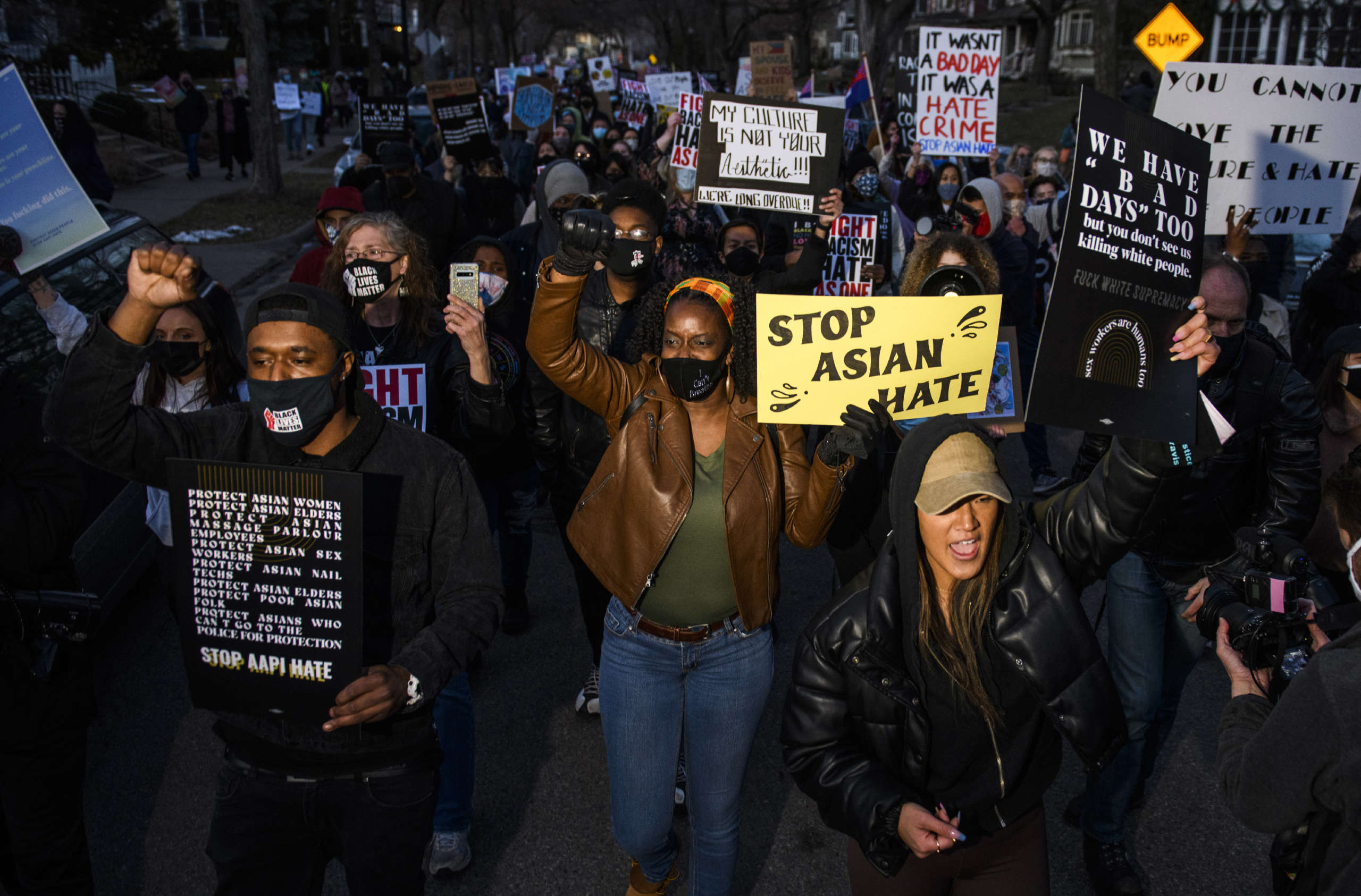
A vicious wave of anti-Asian attacks surged during the pandemic and prompted the #StopAsianHate movement, but there’s a deeper history of racist violence and multiracial solidarity — a history that Rep. Rashida Tlaib, actor Danny Glover, educator Maya Soetoro-Ng and I discussed in a recent conversation hosted by Haymarket Books and the James and Grace Lee Boggs Foundation.
We began this conversation by situating recent anti-Asian attacks within the broader context of right-wing nationalist reaction to social and political change. The murders at the Atlanta spas were tied to rampant gun violence and a former religious fundamentalism that breeds toxic masculinity shaped by colonialism and white supremacy. They occurred after Asian Americans in Georgia came out to vote in record numbers in the presidential election and the Senate runoffs, primarily through organizing and campaigning alongside African Americans like Stacey Abrams.
The man who killed eight people, including the six women in the Atlanta spas, was able to buy a gun on the same day he chose to carry out the murders, but GOP-controlled legislators are making it impossible to register to vote on Election Day. Texas just passed a law to allow residents to carry handguns without a license or training, while the governor and legislature continue to push for racist and ableist voter suppression laws, expand xenophobic border walls, and assault the rights and dignity of transgender youth. Yet, they fail to fix the privatized, deregulated electricity grid that caused hundreds of deaths last winter.
The late James Boggs (1919-1993) and Grace Lee Boggs (1915-2015) were an interracial couple who dedicated their lives to advancing movement activism and theories of social transformation. James was a Black man from Marion Junction, Alabama, and Grace was a Chinese American woman raised in Jackson Heights, New York, With our movements challenged to build solidarity in the face of persistent tensions and conflicts, the 40-year partnership of James and Grace Lee Boggs as a Black and Asian American couple in marriage and organizing is a source of historical and ongoing inspiration.
As historian Robin D.G. Kelley states, “The home of Grace Lee and Jimmy Boggs was the gathering point for everyone — from community organizers and internationally renowned intellectuals to neighborhood kids — thinking about and making a new revolution.” I am part of a new campaign to preserve the Boggs House on the East Side of Detroit as a community museum for current and future generations of movement builders to experience.
While the Boggses were extraordinary figures, a primary goal in the conversation I helped to organize was to move beyond the notion that their cross-racial interaction was exceptional rather than paradigm-shifting. They understood that we needed to change the narrative of who we are and how we relate to each other, both in our local communities and as a nation. How can our diverse struggles bind us together to advance justice and common humanity?
On the 39th anniversary of Vincent Chin’s death, the James and Grace Lee Boggs Foundation and Haymarket Books sponsored the virtual event, “From #StopAsianHate to Cross-Racial Solidarity,” a video of which is shared below. In response to the national wave of anti-Asian attacks and upsurge in movement organizing, I asked the panelists to reflect on their personal experiences, growing up with and learning about the struggles of people from different racial backgrounds, the solidarity work they are currently doing, and the inspiration they have drawn from Vincent Chin and James and Grace Lee Boggs.
Press freedom is under attack
As Trump cracks down on political speech, independent media is increasingly necessary.
Truthout produces reporting you won’t see in the mainstream: journalism from the frontlines of global conflict, interviews with grassroots movement leaders, high-quality legal analysis and more.
Our work is possible thanks to reader support. Help Truthout catalyze change and social justice — make a tax-deductible monthly or one-time donation today.